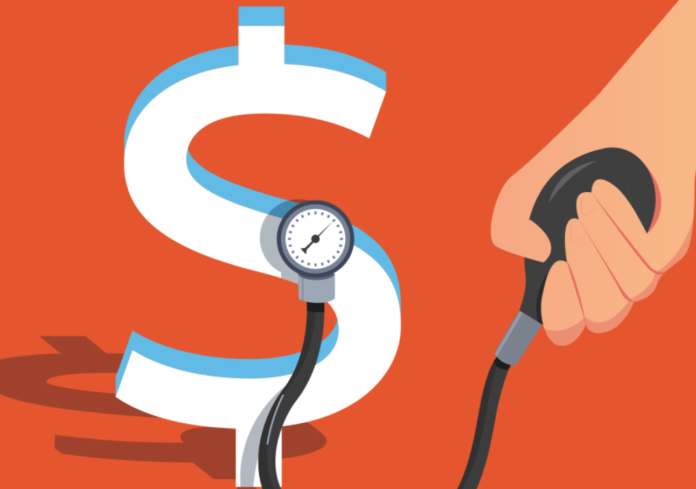On 10 June the Democracy Project published online an article by me on why New Zealand should seriously consider developing its own vaccine manufacturing and supply, particularly in respect of the coronavirus pandemic.
I argued that the powerful control of vaccine manufacturing and supply by powerful overseas pharmaceutical companies, including through patents, meant that a small economy like New Zealand would always be vulnerable in negotiating vaccine supply. This was more so because the companies are not just profit driven; they are profit-maximisation driven.
I then gave Cuba as an example of a small country that had successfully developed vaccines through not-for-profit state institutions. This isn’t just exceptional because Cuba is a small country; it is also exceptional because for over 60 years it has been subjected to brutal and cruel economic warfare. Cuba has manufactured 5 Covid-19 vaccines all at various stages of clinical trial development. In what is remarkable progress given its exceptional situation, Cuba has already fully vaccinated more than 2 million of its over 11 million population.
Doctors advocacy
In a significant development Stuff reported (21 July) that some doctors were now calling on New Zealand to produce its own coronavirus vaccines in recognition of its vulnerable position https://www.stuff.co.nz/national/health/coronavirus/300362821/covid19-calls-for-new-zealand-to-produce-our-own-coronavirus-vaccines.
The Royal New Zealand College of General Practitioners Medical Director Dr Bryan Betty advised that the ability to produce and develop vaccines independently of overseas pharmaceutical companies must be an “urgent consideration” for the Labour government. Dr Betty’s earlier advocacy of this advice was reported in my Democracy Project article referred to above.
Dr Betty wasn’t critical of New Zealand’s access to the current Covid-19 vaccine. But he was concerned about the evidence around virus mutations leading to more deadly variants (Delta is the latest but not necessarily last) that are likely to require regular booster vaccinations. This dependency on future vaccines would make the country at risk of being “jostled around and forgotten in an international scramble for access….”
Director-General misses the point
The response to Dr Betty’s call from Director-General of Health Dr Ashley Bloomfield was dismissive referring to “huge global capacity” and claiming that there had been no issues with New Zealand’s vaccine supply. His response misses the point.
The “huge global capacity” is overstated given the extensive international impact of the pandemic, the need to reach the World Health Organisation’s global target of a 70% vaccination rate in order to achieve effective ‘herd immunity’, and the control of manufacture and supply by huge international companies. New Zealand has done well to procure the vaccine supply that it has but ongoing supply of boosters and new vaccines for when the current ones wear off and new deadly variants emerge is a different matter.
New Zealand is a small economy relative to, for example, Canada which helps explain why our vaccine supply is low relative to other OECD members. Profit-maximisation driven pharmaceutical companies will naturally prioritise larger over smaller economies.
Nevertheless Dr Bloomfield was right to point out that domestic vaccine manufacture would be a big task. Advocates of domestic production are not delusional about this challenge.
Doable with long lead-in and investment
Professor David Murdoch is a specialist in pathology and internal medicine with additional expertise in epidemiology and infectious diseases. He is currently Dean at the University of Otago (Christchurch) but has recently been appointed the University’s next Vice Chancellor.
His assessment is positive recognising that New Zealand does have the potential to manufacture vaccines and has already produced animal vaccines. Like Dr Bloomfield, he recognised that the local manufacturing of Covid-19 vaccines would be a “huge ask” with a long lead-in time required. But looking ahead Professor Murdoch considered it to be a “good thing” to look at New Zealand’s capability to manufacture vaccines.
Another positive response came from Associate Professor Dr Helen Petousis-Harris, an Auckland University vaccinologist. She accepted that would involve enormous investment including funding but it “should definitely be considered”. It was doable providing the investment was made, possibly in the vicinity of $1 billion to set it up.
She observed that emerging infectious diseases and the likelihood of more pandemics are now part of New Zealand’s reality. Further, New Zealand manufacturing vaccines should not only service its own population but could also contribute to wider global efforts outside the Pacific.
Noting Cuba’s own impressive humanitarian medical missions around the world I wonder if Dr Petousis-Harris has a bit of Cuban DNA in her. For avoidance of any ambiguity this is a compliment.
Nothing ventured, nothing gained
As New Zealand’s famous and iconic mountaineer Sir Edmund Hillary once said, ‘nothing ventured, nothing gained’. Even acknowledging that it has over twice New Zealand’s population, if Cuba can develop vaccines while being attacked by economic warfare from the world’s most powerful economy, then surely New Zealand without such an attack could do likewise.
As a starting point Minister of Health Andrew Little could have an informal chat with Cuba’s Ambassador. After all, they both reside in Wellington and the latter’s Cuban coffee is very good.
Ian Powell was Executive Director of the Association of Salaried Medical Specialists, the professional union representing senior doctors and dentists in New Zealand, for over 30 years, until December 2019. He is now a health systems, labour market, and political commentator living in the small river estuary community of Otaihanga (the place by the tide). First published at Otaihanga Second Opinion.






Large countries with high-level research facilities can’t even manufacture a vaccine, so why does anyone think this backwater can?
We used to manufacture pharmaceuticals in NZ until the mid-1990s, when Glaxo pulled out of NZ citing the Rogernomic-era withdrawal of government support for manufacturing and science-based industries in NZ as the reason. See Chapter 12, ‘Last Years in Palmerston North’, in ‘From Joseph Nathan to Glaxo Wellcome: The History of Glaxo in New Zealand’, by Julia Millen and Mark Di Somma, 2nd edn, 1997, Glaxo Wellcome, Auckland NZ. The tale is told from Glaxo’s point of view but it is pretty damning all the same: “Ironically, by this time, the future for the research-based industry in New Zealand had become increasingly uncertain.” (p. 171).
It would be to New Zealand’s own personal benefit if we were to manufacture vaccines. This is a good thing.
We were, only five years ago, known for our well respected scientists but that fact is now largely forgotten amidst the world’s chaos and debris. It is surprising to me, and yet somehow I feel that it shouldn’t be, that countries such as the UK and the USA are going downhill and yet most of their career professionals, including central government officials, maintain their inflated egos. It is as though they do not see the correlation between the effects the pandemic is wreaking on their fellow citizens and the lack of internal security measures.
In New Zealand, we have top ranking universities for science and medicine, specifically the university of Otago, which has spawned thousands of articulate, intelligent, polite and dedicated graduates.
Furthermore, first year study is free, and there’s plans to extend that to the first three years of study. Any study costs which are not free are usually covered by a Student Loan.
NZ already manufactures animal vaccines and yes humans are animals. Rather than export scientists and virologists it makes sense to have a bigger local vaccine industry.
‘Cuba has the same effect on the usa as the moon does on Werewolf’s.’
The vampire capitalists who run the usa hate Cuba as a vampire hates and fears the christian cross ,,, doing healthcare for the reason of improving humankind’s health could threaten profits !! ,,, And we can’t have that ,,,, https://pbs.twimg.com/media/E0rxRUpXIAEIDe4?format=jpg&name=small
NZ could produce our own Vaccines,,,, and with Covid in particular I’m sure one of the countries like Russia, Cuba or China could license us to produce one of theirs at minimal or no cost ,,,, but doing so could be in breach of TPPA or WTO rules.
The reason for the DEFEAT of worldwide collaboration and cooperation in fighting Covid comes down to nothing but greed ,,,, if a virus could laugh it would do so at the stupidity of “Intellectual Property Rights” superseding effective and logical disease fighting efforts.
“Waiving intellectual property rights is essential to tackle serious inequity in the global distribution of covid-19 vaccines, whereby wealthy countries currently control the lion’s share of existing supplies. “ ,,, “By the end of April only 0.2% of vaccines had been given in low income countries.”
,,,,,,,,,,,,,,,,,,,,,, “Variants Are Proliferating” ,,,,,,,,,,,,,,,,,,
https://www.bmj.com/content/373/bmj.n1344
Cuba in the field of healthcare makes the usa look shit-house ,,,,, Covid has made this more obvious.
“On March 12, as a British ocean liner approached the Bahamas with almost 50 passengers and crew displaying symptoms of, or diagnosed with, the coronavirus, many on board hoped that their “voyage of the damned” to find a Caribbean nation that would allow them to dock was finally over. ,,,,,,,,, Despite frantic efforts by the British Foreign Ministry and Fred Olsen Cruise Lines, which owns the ship, over the next five days several other Caribbean nations, as well as United States, reportedly denied docking rights.
But on March 18, Cuba became the lone nation to accept the ship. “
“Cuba’s international efforts to stem the spread of the virus outside its borders are part of a long and consistent pattern of global humanitarian commitment. For decades, the government has provided full scholarships to thousands of foreign medical students to study at the vaunted Escuela Latinoamericana de Medicina, Cuba’s international medical university. Cuban medical brigades have brought free health care and services to impoverished populations in dozens of Third World nations; “
The Usa wants to crush these profit threatening socialists ….
This just in:
https://www.cnbc.com/2021/07/30/cdc-study-shows-74percent-of-people-infected-in-massachusetts-covid-outbreak-were-fully-vaccinated.html
So if this is correct (i.e. the vaccines don’t work), where to from here? And why are many countries continuing to strongly promote people to get it?
This study doesn’t say or prove vaccinations don’t work. The critical test is mortality, not infections. It was always known that some fully vaccinated people would still be infected even before the Delta variant appeared. Delta has made the risk of it much higher. Half of Massachusetts has been fully vaccinated.
Comments are closed.